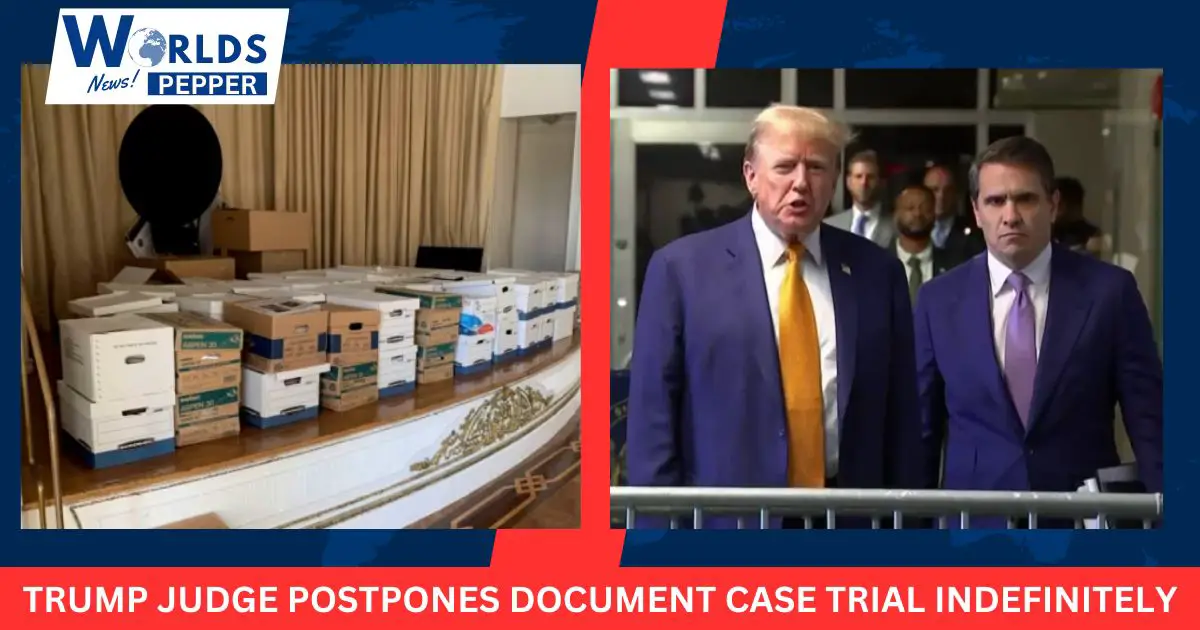The decision, attributed to Judge Trump, has ignited debates, raised questions, and fueled speculation about the motives behind such a move. Against the backdrop of a fiercely contested presidential election, the implications of this postponement extend far beyond the confines of the courtroom. In this comprehensive analysis, we delve into the details of the case, explore the legal intricacies at play, and examine the broader implications for the justice system, political landscape, and public perception.
The Case Unfolded:
The case against Donald Trump revolves around allegations of mishandling classified documents during his tenure as President of the United States. These documents, purportedly containing sensitive information vital to national security, form the crux of the charges leveled against him. The Justice Department’s pursuit of this case underscores the gravity of the allegations and the importance of upholding the principles of accountability and transparency, irrespective of one’s political stature.
Legal Maneuvers and Judicial Decisions:
Amidst mounting anticipation, the trial was slated to proceed, with the specter of legal proceedings looming large over Donald Trump’s political aspirations. However, the trajectory of the case took an unexpected turn when Judge Trump, presiding over the proceedings, announced the indefinite postponement of the trial. This decision, shrouded in ambiguity, has sparked intense speculation and triggered a flurry of reactions from various quarters.
Understanding Judge Trump’s Rationale:
To comprehend the rationale behind Judge Trump’s decision, it is imperative to consider the legal precedents, procedural complexities, and inherent nuances that underpin such judicial determinations. While the specifics of Judge Trump’s deliberations remain veiled, several plausible explanations can be inferred. One school of thought posits that the postponement may be attributed to procedural irregularities or evidentiary challenges that necessitate further deliberation. Alternatively, it is conceivable that Judge Trump may have deemed it prudent to defer the trial to a later date to ensure a fair and impartial hearing, shielded from the polarizing influences of the impending presidential election.
Implications for the Justice System:
The postponement of Donald Trump’s trial reverberates across the corridors of justice, raising pertinent questions about the efficacy, integrity, and independence of the legal system. Critics contend that the delay undermines the pursuit of justice and perpetuates a culture of impunity wherein powerful individuals evade accountability through legal maneuvers and procedural delays. Conversely, proponents argue that the postponement signifies a commitment to due process, procedural fairness, and the preservation of judicial integrity, albeit at the cost of expediency.
Political Ramifications:
Against the backdrop of a fiercely contested presidential election, the postponement of Donald Trump’s trial assumes heightened political significance, amplifying the polarization and partisan rhetoric that characterize contemporary politics. Critics of the Trump administration perceive the delay as a strategic ploy to shield the former president from legal scrutiny and safeguard his political ambitions. Conversely, supporters view it as a vindication of Trump’s innocence and a testament to the resilience of democratic institutions in the face of concerted political attacks.
Public Perception and Discourse:
The public discourse surrounding the postponement of Donald Trump’s trial reflects a kaleidoscope of opinions, conjectures, and divergent interpretations. Social media platforms serve as breeding grounds for conjecture, speculation, and conspiracy theories, further exacerbating the polarization and ideological divisions that plague society. Amidst the cacophony of voices clamoring for attention, discerning fact from fiction becomes an arduous task, underscoring the need for informed discourse and critical thinking.
Conclusion:
In conclusion, the postponement of Donald Trump’s trial for allegedly mishandling classified documents underscores the intersection of law, politics, and public perception in shaping the contours of justice. Against a backdrop of escalating tensions, partisan divisions, and institutional challenges, the decision to defer the trial evokes a plethora of reactions, ranging from skepticism to vindication. As the legal proceedings unfold and the political landscape evolves, it remains imperative to uphold the principles of accountability, transparency, and the rule of law, lest the fabric of democracy fray at the seams.

